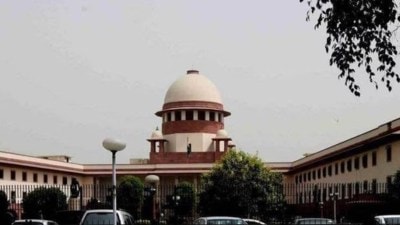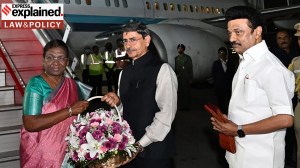Want capitalism? Build cities
Capitalism has entered a phase very different from the one swadeshiwallahs warn about. They are still in the age of 19th century imperialis...

Capitalism has entered a phase very different from the one swadeshiwallahs warn about. They are still in the age of 19th century imperialism when colonies exported raw materials and received finished goods.
For India, that phase had passed into history by the early 1900s. It is a documented fact that India was the world’s second largest exporter of machine made cotton yarn and Britain’s largest export market for textile machinery when Gandhi gave the call for swadeshi.
The effects of globalisation have made interesting study for urban geographers. They find that, since the ’50s, rates of urbanisation have soared worldwide. The world is now 50 per cent urban; urbanism is a way of life everywhere. The cause: in this new phase of capitalism, manufacturing is shifting to the periphery of the global market. Global companies design products at home and transfer manufacturing to cost-effective firms in the developing world. An example is of publishing, where the core does the editing and proof-reading which require specialist skills, leaving labour intensive typesetting and printing to the periphery.
Then there are the `hollow companies’: a multi-million dollar US toy giant is run by a core office of just 150 persons engaged in designing and researching concepts, and in out-sourcing manufacturing from Korean, Taiwanese and Chinese firms. A global athletic footwear firm does the same thing. Ford’s `world car’ is designed in Detroit and built in strategically located plats from parts fabricated in developed and developing countries. The world is becoming a factory. That’s transnational corporate capitalism.It is a fact that this process is accompanied by the globalisation of the electronic media. Theses of `cultural imperialism’ are disproved by a careful examination of the facts. In Japan, Dallas received one per cent of the viewership Oshin got. In the Netherlands, with an informed audience that spoke English, French and German, the opening up of international TV channels did little to harm Dutch TV. In India, we see the enormous Indian content on Star, BBC, Channel V, and even MTV. These have placed many Indians on the global map. The urban world, whose values are being broadcast internationally, is plural. There is no imperial cultural dominance.
As the periphery industrialises and urbanises, it is quite clear that this is not the capitalism of old. Its core does not lie in any nation state, but is scattered among a dozen or so `world cities’. These are large financial centres like London, New York and Tokyo which also serve as the corporate headquarters of many global companies. These are linked to cities of the second rung, which serve as regional corporate and financial headquarters like Frankfurt or Singapore. The future success of India lies in building cities which will play an important role among the hubs and spokes of the international economy.
If manufacturing is rapidly shifting to the periphery of the global economy, what role does the Indian state have to play in seeing that India industrialises? Today, its policies are based on a plethora of imagined woes from the need to protect domestic manufacturers from competition, to the fears of `dumping’ and `cultural imperialism’. Manufacturing would increase here if we opened up the economy; Indian industry would not die. Dumping requires international and not national controls. Cultural imperialism is a false thesis.
Therefore, to see that India industrialises, all that the Indian state has to do is open trade. And build and manage excellent cities. All that the public purse needs to invest in is the link between India’s urban areas, leaving all else to market forces. Currency restrictions should disappear along with the poor financial management signified by the nagging deficit.The kind of state required would necessarily be `hollow’ like the modern corporation. Interestingly, the model of the `hollow state’ based on the `hollow corporation’ has entered public administration. It is found echoing in the annals of New Public Management, a movement that is sweeping the English-speaking world and radically altering governance.
Photos




- 01
- 02
- 03
- 04
- 05



























